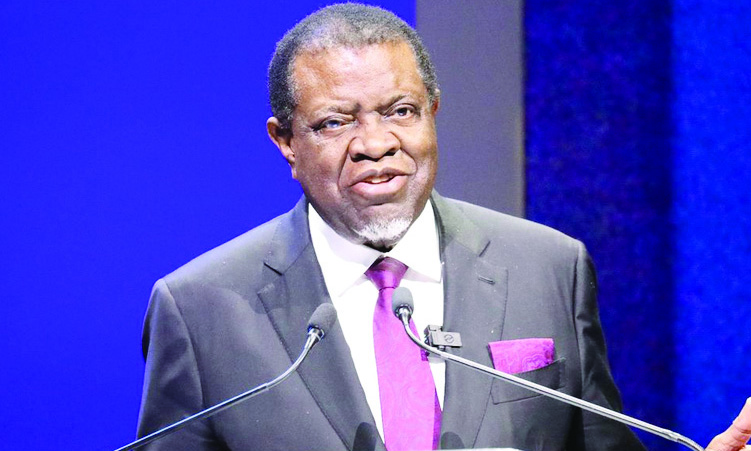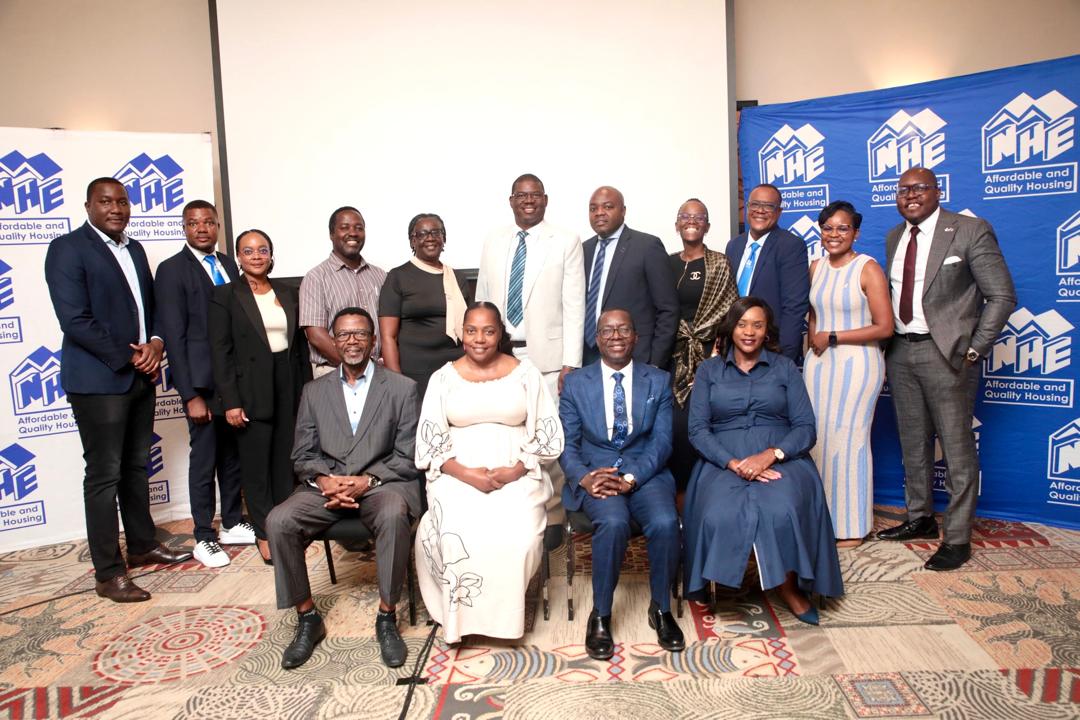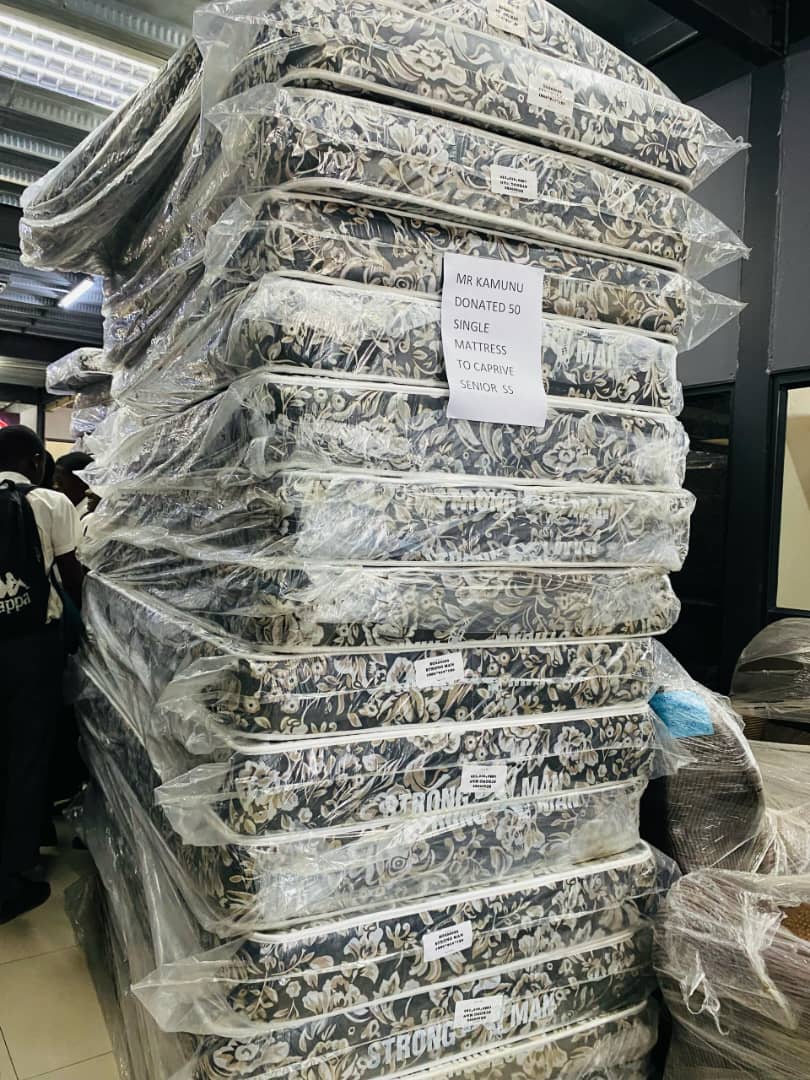President Hage Geingob says Namibia’s burgeoning green economy could potentially usher in an era of unprecedented job creation, nearly doubling the existing employment numbers within the next 17 years.
However, economists call this “an exaggeration”.
Geingob, while delivering his keynote speech at the ongoing Africa Energy Week conference in Cape Town yesterday, said this transformative shift to green hydrogen could result in the generation of over 600 000 fresh job opportunities.
Moreover, the president estimated that the country’s gross domestic product (GDP) would witness a remarkable increase from its current N$58,6 billion to N$115 billion by 2040.
“Our green industrialisation agenda is estimated to present an opportunity to increase our GDP by US$6,1 billion (N$155 billion) by 2040, and could yield more than 600 000 indirect and induced employment opportunities.
“This is almost double the size of our existing formally employed labour force. These are opportunities we cannot ignore,” Geingob said.
However, economist Omu Kakujaha-Matundu says this figure is highly exaggerated.
“I don’t understand why the president repeats exaggerated and inflated job figures. Of course he wants to be seen as a job creator, promising the unemployed a pie in the sky. Yes, jobs will be created, but not to that extent,” he says.
Political analyst Rui Tyitende says lately the country has been bombarded with overly ambitious job creation plans and forecasts that do not speak to the immediate needs of the people.
“It is always future-oriented while the country is currently battling with unremitting levels of unemployment, pervasive poverty and widening inequality,” he says.
Tyitende says to make matters worse, Geingob will be stepping out of office on 20 March 2025 by the time these estimated jobs are to be created.
“Will we bring him back from retirement to account for promises that did not materialise? His administration has severely over-promised and under-delivered,” he says.
“An over-reliance on foreign direct investment has been the primary occupation of this government at the expense of local capacity development. As a country, we are currently worse off ..,” Tyitende says.
Geingob further announced that Namibia has crafted a comprehensive strategy to establish a clean synthetic fuels industry, which would form the backbone of a green industrialisation agenda.
A policy and enactment of the synthetic fuels industry has also been expressed to regulate the industry as expectations heighten amid the US$9,6 billion Hyphen Hydrogen Energy project.
The Hyphen undertaking is planned to apply wind and solar energy technologies to produce large-scale ammonia for export, mainly to Germany and other European nations.
“Given our world-class renewable resources, proximity to the ocean and peaceful operating environment, Namibia is well placed to become a sub-Saharan clean energy powerhouse which will provide the necessary clean fuels and energy sources to power dynamic green and blue economies and associated industries, both at home and abroad,” Geingob said.
Making the case for the coexistence of green hydrogen and oil and gas, Geingob said subsidies and incentives by developed countries for green energy are undermining and undoing prospective business in emerging countries.
“How can less affluent nations with responsible policy ambitions compete with their wealthier counterparts, who are today continuing to exploit both non-renewable and renewable energy sources?” Geingob asked.
He said for as long as the world continues to need a dynamic energy mix, Namibia is more than willing to meet these global energy demands.
“We need to move with haste. Near-term market opportunities must not distract us from the prospect of declining oil and gas export revenues in the future.
“New projects need to benefit from speed to market, minimising project costs and delays, while reducing emissions,” Geingob said.
36 OIL WELLS DRILLED SINCE 1974
Given that 36 hydrocarbon wells have been drilled in Namibia since 1974 and have resulted in oil and gas discoveries, the president said this development would boost Namibia’s revenue and provide much-needed resources to expand and diversify the Namibian economy.
The president said the country “is clearly at the cusp of birthing a globally significant hydrocarbon industry”.
“It is an opportunity that is impossible to pass up,” he said.
Geingob described Namibia as a melting pot for hydrocarbon prospecting, with a share of 13% of all offshore rigs operating in Africa.
The oil prospecting has resulted in the Kudu gas fields discovered by Chevron Texaco in 1974, with an estimated 1,3 trillion cubic feet (tcf) of natural gas 170km offshore Oranjemund.
In 2022, Total Energies and Shell announced discoveries of commercial oil volumes to the tune of three billion barrels in Namibia’s Orange Basin.
“Affordable energy for all Africans is an immediate and absolute priority. African countries have been working to ensure that our countries have access to energy to industrialise, to grow our economies and become dealers of hope for the largest demographic on the continent – our youth,” said Geingob.
Africa Energy Week is being held under the auspices of ‘The African Energy Renaissance: Prioritising Energy Poverty, People, Planet, Industrialisation and Free Markets’.
It is organised by the African Energy Chamber, which is led by controversial executive chairman and Cameroonian lawyer NJ Ayuk.
Geingob is scheduled to receive a lifetime achievement award at the event, which runs until Friday.
Ayuk’s alleged conviction for fraud in 2007, which involved impersonating a United States congressman, remains a topic of debate.
Ayuk vehemently denies the existence of such a conviction, but court documents seen by The Namibian suggest otherwise.
“The chamber categorically denies that NJ Martin Ayuk, a European Union citizen, has ever been convicted of any crime,” Gradie Mbono, African Energy Chamber’s spokesperson, has said.
Stay informed with The Namibian – your source for credible journalism. Get in-depth reporting and opinions for
only N$85 a month. Invest in journalism, invest in democracy –
Subscribe Now!










